By Mark Hansel
NKyTribune Contributor
Gary Moore began his fifth term as Boone County Judge-executive in January and has seen remarkable growth in a number of areas in his 16 years in office.
When Moore was first elected in 1998, Boone County’s population was 80,000. Today that number exceeds 123,000.
A landscape that, with the exception of a strong retail and residential presence in Florence, was marked by large farms and two-lane roads has also become much more diverse.

The industrial and commercial growth that accompanied the steady residential increase slowed some during the economic downturn, but still outpaced most other communities in the Commonwealth.
As the economy has recovered in recent years, that economic prosperity has continued to set the standard, and Moore’s vision for the future of Kentucky’s fourth-largest county is just as ambitious.
So much so, that he told the Northern Kentucky Tribune he already has plans to seek a sixth term in 2018.
“As I talk about the challenges we have in front of us, whether it be transportation, economic development, or other infrastructure challenges, I don’t think they will be resolved in the next four years,” Moore said. “Some people got in their head that I wasn’t going to run in 2014, so I’m making it very clear now that I’m planning on being here for another term.”
Moore sat down recently to reflect on his tenure as Boone County’s CEO and spoke in great detail about some of the changes and challenges that lie ahead.
Upgrades needed to accommodate continued growth
Moore said when he talks with people in the community what is usually first on their minds is the upgrades to the county’s transportation network.
“The number of road and highway improvements is just mind-boggling,” Moore said. “The new roads we have built, Aero Parkway, Bushelman Boulevard and the Cayton Connector from Hopeful Church Road to Mall Road, to name a few, have greatly impacted the community.”
The Kentucky State Data Center estimates Boone County’s population will be 154,000 in 2020 and surpass 190,000 by the year 2030.
Florence, the county’s largest city, has kept pace, with a population increase from 20,000 in 1998 to an estimated 31,000 in 2013. Florence is largely built out, however, so its population is not likely to increase much without annexation.
Boone County is already somewhat unique in that more than 80,000 of its residents live in unincorporated areas and if the population estimates are accurate that number will rise considerably.
That type of growth in unincorporated areas will requires massive upgrades, so it’s not surprising that Moore said his primary goal for this term is to once again relieve congestion and improve the transportation system.
“I want to start with upgrading our countywide transportation plan, which was last done in 2007, Moore said. “Many of those projects are either built or funded and now we need to explore what the next wave of projects is, once those are completed.”
An estimated $130 million is dedicated to four state-funded projects that also qualify for federal funding, including the widening of Mt. Zion Road from US 42 to Interstate 71/75.
That figure is just for construction and does not include the costs for right-of-way, design, engineering and utility movement.
The other projects are upgrades to Pleasant Valley and Camp Ernst Road, which is part of the larger KY 237 improvement project, and the rebuild of interchanges at Richwood Road and Mt. Zion Road.
A new project that has become a priority as a result of the residential and industrial growth in the Hebron area is the alleviation of congestion around Interstate 275 and North Bend Road (KY 237).
“During the last holiday season Amazon hired thousands of seasonal workers and the truck traffic with all the logistics warehouses there totally gridlocked that part of the county,” Moore said. “It was not only a major inconvenience to residents, but it was a safety concern because traffic was backed up onto Interstate 275 (westbound) to the airport.”
In addition to the anticipated industrial growth in the Hebron area, 2,700 homes that have not yet been built have been approved by the county’s planning commission.
Moore called an existing plan to add turn lanes and widen a portion of KY 237 north of the interstate just a band-aid. The most likely solution to alleviate the existing and anticipated congestion is the addition of an interchange at Graves Road.
That would require an interchange justification study at a cost of approximately $800,000 and would take at least a year to complete. Moore plans to work with the state and OKI to get an expedited IJS, but with $130 million projects already in the cube, it might be difficult to secure funds for the interchange itself.
The county built the $20 million Aero Parkway/Bushelman Boulevard project that links Turfway Road and Kentucky 18, with a connector to Houston Road, and turned the road over to the state upon completion. Moore said that kind of out-of-the box thinking might be necessary to get a Graves Road interchange constructed in a timely manner.
He said the county must also work with the Transit Authority of Northern Kentucky to install a transit system that is in tune with the economic development in the community.
“When people think of TANK, many see it as a social service program for those on a limited income, but in Boone County, it’s more about connecting workers to jobs,” Moore said. “TANK has been very helpful and has stepped forward in the past and we are going to have to partner with them even more to meet the needs of the community.”
Recently, a route in the Hebron area was split to meet demand and there is also a call for increased transit routes in the Richwood area.
Infrastructure improvements, such as upgrades to the county’s sewer system will also be necessary in growth areas such as Hebron.
“We are working with SD1 and a task force that I appointed to try to come up with some solutions to the SD1 transmission lines that connect the sanitary sewers from these new developments to the existing plants,” Moore said. “The challenge is not treatment, because the plants have plenty of capacity, but improving the transmission lines to get it to the treatment facility.”
It could cost as much as $18 million for a substantial fix in the Hebron area. Moore believes SD1 should fund the upgrades, but recognizes the challenges the utility is facing.
I understand the challenges of… maintaining systems in some of the river cities and the older parts of Northern Kentucky,” Moore said “But if you are not allowing for new growth and bringing new customers on board, that’s going to negatively impact the future funding of the utility.”
Stay the course on economic development
Moore said the economic development plan for the county will be the continuation of the successful strategy that is in place.
“We lead the state in having the lowest level of unemployment of any county and we continue to see existing industries, major expansions and companies investing their dollars to create new jobs,” Moore said. “New companies are continuing to take a look at us as well.”
More acknowledges that Toyota’s decision to move its operations out of Northern Kentucky last year was a major disappointment.
“That’s why you focus on economic development, because you know you are going to have some wins, and some losses,” he said.
“Companies are more mobile and it would be more of a concern when you lose a company as impactful as Toyota if we weren’t brining in new companies.”
While not speaking specifically of Toyota, Moore said, in general, companies that leave Boone County find it much more challenging than anticipated.
“I often hear from people about how they feel accepted in the community and that if they want to get involved in social, community or business networks, it’s very easy to do here,” Moore said.
“People here do get involved and they don’t want to leave and that speaks volumes about our community.”
The use of Tax Increment Financing (TIF) is a tool that Moore believes can be a great benefit to the county if it is used correctly. TIF allows for the use anticipated future gains in taxes to support current improvements that are expected to generate increased revenue. TIF only affects the incremental increase in taxes, so the revenue generated prior to the establishment of a district is not impacted. Another type of TIF introduces a wage assessment above and beyond the locality’s normal payroll tax rate to generate additional income.
Moore credits the establishment of a TIF district in Richwood with contributing to the economic growth in that part of the county.
“The Richwood TIF district has not only allowed the businesses in the district to continue to expand, it has facilitated infrastructure improvements,” Moore said. “It has allowed for a water line extension, a roadway network within the development and there are reserve funds that will help us with some connections as the Richwood interchange begins construction.”
TIF could also potentially be used as a creative financing tool to help us fund a project that may not have traditional funding, such as the proposed new interchange in Hebron.
The airport
A bill introduced by Diane St.Onge, R-Lakeside Park, in the Kentucky General Assembly this month would change the board that oversees the Cincinnati/Northern Kentucky International Airport (CVG).
Kenton County would retain most of the oversight for CVG, which is located in Boone County, but other Northern Kentucky counties would have a stronger voice if the legislation is approved. Boone County would get two seats on the airport board, and Campbell and Grant counties would each get one seat. Occupants of the seats would be chosen by the county’s judge-executive, with approval from each fiscal court.
“I’m going to support this legislation and while I would like to see more voting members from Boone County, it is a great step forward,” Moore said. “I’m also pleased to see that the appointments will have to be confirmed by the county commissioners.”
The governor of Kentucky would get to choose one appointment and the 11-member airport advisory board would be eliminated.
“I’m also pleased that the advisory board is going away because if someone is going to invest as much time as it takes to be a board member at CVG, they should have the same voting rights as the person sitting next to them,” Moore said. I’m hopeful that the new structure will lead to stronger governance of our international airport, which is one of our greatest assets.”
CVG is expected to begin construction on an extension of Wendell Ford Boulevard, which currently ends right by the DHL hub, to Aero Parkway. The goal for development along Aero Parkway has always been to accommodate companies that would increase CVG’s impact as a commercial hub to complement the passenger component.
Property maintenance and code enforcement
Another area Moore would like to address during this term is the identification of uniform standards and regulations for property maintenance and conditions.
“The issue of property maintenance and code enforcement is something we are going to have to tackle as a county,” Moore said “It can be everything from grass not being cut, to garbage everywhere, to shutters falling off a house or the roof caving in.”
Code enforcement is generally left to city government, but because so many residents live in unincorporated areas, Moore thinks county guidelines are needed.
“With the foreclosures that took place and just growth in general, we need some common sense codes that will help us to keep some reasonableness to what home owners should expect and have a right to expect.”
That has been a tough issue to tackle in Boone County because of the strong views of some residents on personal property rights. Many believe the government exceeds its authority when it tries to tell people how to maintain their property.
Moore is confident that he has enough support from county commissioners Charles Kenner, Charlie Kenner and Cathy Flaig to get a draft ordinance in the works this spring.
“We touched on this in our visioning meeting in December and there was a willingness to take a look at it from the county commissioners,” Moore said. “Of course they want to see the language and the details.”
The key component is that there will be a board of citizens appointed by the Fiscal Court and Moore said code enforcement would be better for the homeowner than the current system.
“In extreme cases now, a suit is filed in district court, then the county cleans up the property and places a lien on it” Moore said “Under the proposed plan, the county would have the ability to cite a homeowner, give them a period of time to rectify a problem and enforcement takes place only in instances of noncompliance. This would be more a jury of their peers, with other homeowners involved in the process.”
Reflections
Moore said some of the biggest changes since he became Judge-executive in January 1999, have taken place in the administrative building.
“The Justice Center offices, the jail facility and the sheriff’s law enforcement center, which are now located on Conrad Lane, were all in this building and the old courthouse,” Moore said. “When you look at the size of those buildings and what they represent today, it’s amazing to think we had room for it all back then.”
Moore, 57, said while he is strongly committed to seeking reelection in four years, he isn’t sure what he might do after that. He has no plans to rival the tenure of legendary Marshall County Judge-executive Mike Miller, who served for 41 years and was preparing to begin another term when he died in December.
He does, however, still have passion for the job and feels there is some unfinished business that he would like to attend to before he steps away.
“I love coming to work every day and working for this community,” Moore said. “I love Boone County, and what we’ve built here and I’m going to see it through.”







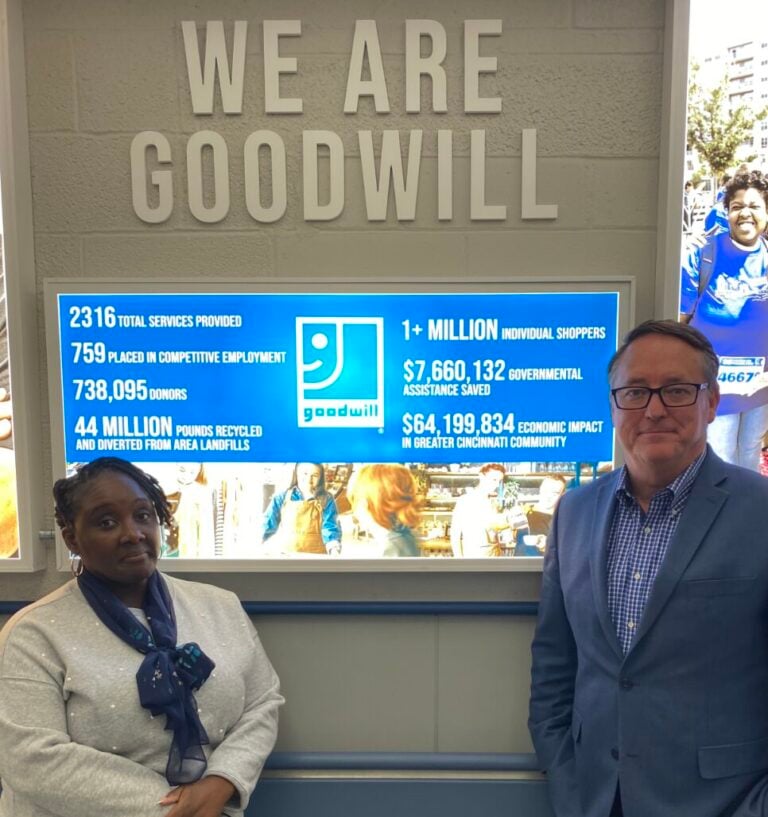

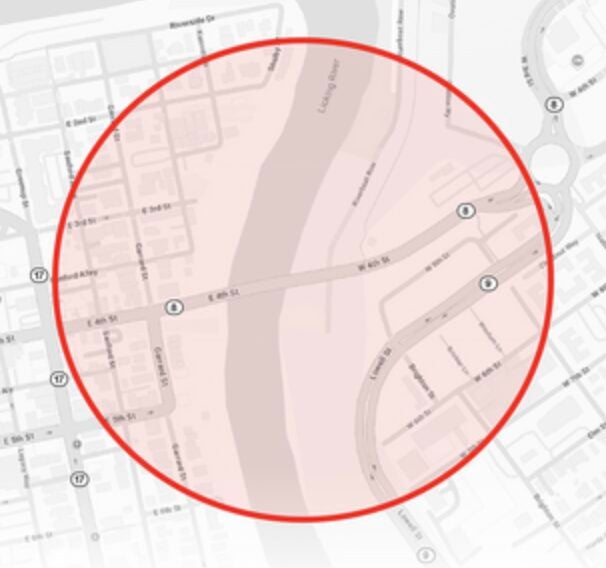





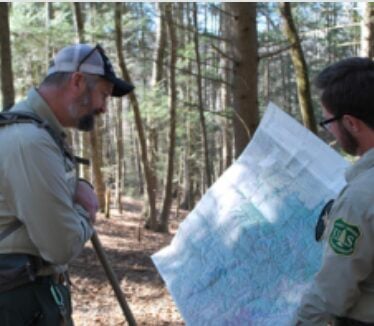

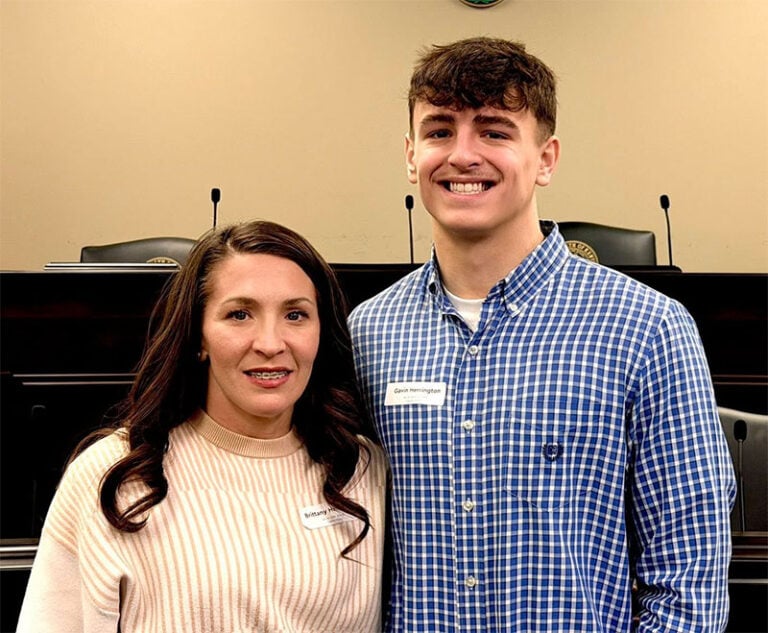
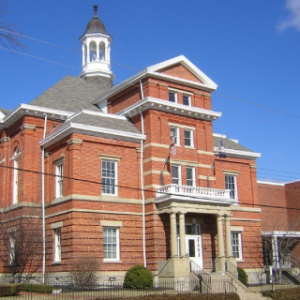

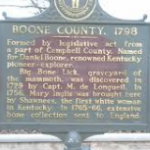
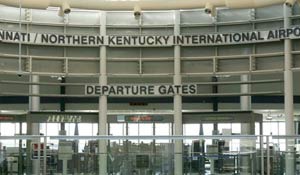
This was written three years ago. Now a new election year. I have lived here for seventeen years now.
Very sorry I elected to purchase in Boone County.
Where Judge Moore may have vision, there is no quality infrastructure in the employees of Boone County.
A prime example is my neighborhood of South Hampton Estates. We have had speed bumps put in, excessive signage, and a pile of trash left on properties. No calls to the County have helped this situation.
I live next to a house that has been under construction for 13 years. Has had an extension cord running across the property for 13 years. Many calls to the County. They say there is nothing they can do about that, or the Porta potty I have to look at.
Sorry they need to go read the State of KY building codes! It clearly states how electric is to be provided on a construction site. Clearly states that the county electrical inspector has the right to determine what is safe, and enforce it.
The answer is well it was done before, well we have let people have Port a potties. Yes for a working crew on an active work sight. Look at the OSHA regulations! A two man crew that works maybe three days a month does not qualify for a port a potty that I have to look at everyday.
Now we have the road work on Mt Zion. So now our community is a dumping ground for everything the county workers are not using. Piles of unused pipe, orange cones, detour signs, etc. District six refuses to clean it up.
I would love to see the proposed arbitration board passed for complaints. But you have failed to properly explain this to Boone County residents in rural Boone County.
I would also argue that most of these restrictions are already covered under the State of KY residential codes. You just fail to have knowledge of, or enforce them.
Boone County is growing. Where is our representation on the State board of code enforcement?
Money should be spent on getting CVG back in the market. Money should be spent on getting a subway to downtown Cincy.
We cannot grow without CVG being a viable transportation hub, and some public transportation.
So we lost Toyota, lost the new Amazon plant.
Not really sure why we are so worried about this growth. Are we not taking in enough tax money now?
In the process of all this growth, those of us that have lived here for years are being shoved to the side.
Bigger is not always better.
Holly G. Sander